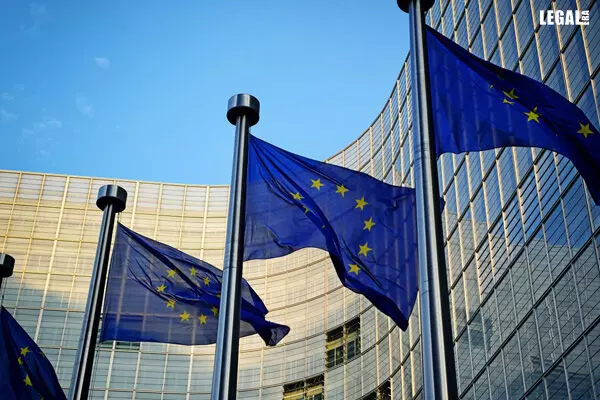- Home
- News
- Articles+
- Aerospace
- AI
- Agriculture
- Alternate Dispute Resolution
- Arbitration & Mediation
- Banking and Finance
- Bankruptcy
- Book Review
- Bribery & Corruption
- Commercial Litigation
- Competition Law
- Conference Reports
- Consumer Products
- Contract
- Corporate Governance
- Corporate Law
- Covid-19
- Cryptocurrency
- Cybersecurity
- Data Protection
- Defence
- Digital Economy
- E-commerce
- Employment Law
- Energy and Natural Resources
- Entertainment and Sports Law
- Environmental Law
- ESG
- FDI
- Food and Beverage
- Gaming
- Health Care
- IBC Diaries
- In Focus
- Inclusion & Diversity
- Insurance Law
- Intellectual Property
- International Law
- IP & Tech Era
- Know the Law
- Labour Laws
- Law & Policy and Regulation
- Litigation
- Litigation Funding
- Manufacturing
- Mergers & Acquisitions
- NFTs
- Privacy
- Private Equity
- Project Finance
- Real Estate
- Risk and Compliance
- Student Corner
- Take On Board
- Tax
- Technology Media and Telecom
- Tributes
- Viewpoint
- Zoom In
- Law Firms
- In-House
- Rankings
- E-Magazine
- Legal Era TV
- Events
- News
- Articles
- Aerospace
- AI
- Agriculture
- Alternate Dispute Resolution
- Arbitration & Mediation
- Banking and Finance
- Bankruptcy
- Book Review
- Bribery & Corruption
- Commercial Litigation
- Competition Law
- Conference Reports
- Consumer Products
- Contract
- Corporate Governance
- Corporate Law
- Covid-19
- Cryptocurrency
- Cybersecurity
- Data Protection
- Defence
- Digital Economy
- E-commerce
- Employment Law
- Energy and Natural Resources
- Entertainment and Sports Law
- Environmental Law
- ESG
- FDI
- Food and Beverage
- Gaming
- Health Care
- IBC Diaries
- In Focus
- Inclusion & Diversity
- Insurance Law
- Intellectual Property
- International Law
- IP & Tech Era
- Know the Law
- Labour Laws
- Law & Policy and Regulation
- Litigation
- Litigation Funding
- Manufacturing
- Mergers & Acquisitions
- NFTs
- Privacy
- Private Equity
- Project Finance
- Real Estate
- Risk and Compliance
- Student Corner
- Take On Board
- Tax
- Technology Media and Telecom
- Tributes
- Viewpoint
- Zoom In
- Law Firms
- In-House
- Rankings
- E-Magazine
- Legal Era TV
- Events
EU Regulator: Asset Managers Should be Fined for Overcharging

EU Regulator: Asset Managers Should be Fined for Overcharging
As part of the effort to improve investor protection and to prevent investments from being overcharged, the European Union (EU) Regulator- European Securities and Markets Authority (ESMA) is set to propose changes to rules for the nearly 20 trillion-euro ($22 trillion) investment and hedge fund sector, with fines imposed for breaches.
The EU securities watchdog is of the view that there is a need for better clarity in EU investment and hedge funds laws on what constitutes “undue costs” on investors.
In order to ensure value for money when buying financial products, EU officials are due to publish a draft of rules next week that will enhance protection for investors who purchase financial products.
The ESMA opined that this would make it easier for regulators to take enforcement action against rip-offs.
ESMA Chair Verena Ross in her statement said, “If we want to enhance retail investors' participation in capital markets, we should ensure that the expected return of investment products isn't impacted by undue costs.”
According to ESMA, the regulator is confident that its ‘opinion’ on undue costs, in line with the retail investment strategy that is coming up next week, must be taken into account in the proposals.
Funds typically disclose their one-off and recurring costs to investors.
ESMA further asserted that the assessment regarding whether a cost is due/undue should also consider the amount of the cost as there can be cases where a cost meets the eligibility test, but it is 'undue' in terms of its quantum.
“ESMA deems appropriate to ensure that fund managers reimburse or indemnify investors without undue delay where undue costs have been charged, including cases where costs have been wrongly calculated to the detriment of investors,” added ESMA.
Lastly, the watchdog said that, managers of public funds who intentionally or negligently infringe such a rule should be punished with a fine that is proportional to the harm they cause to investors, in order to mitigate any future repercussions.


